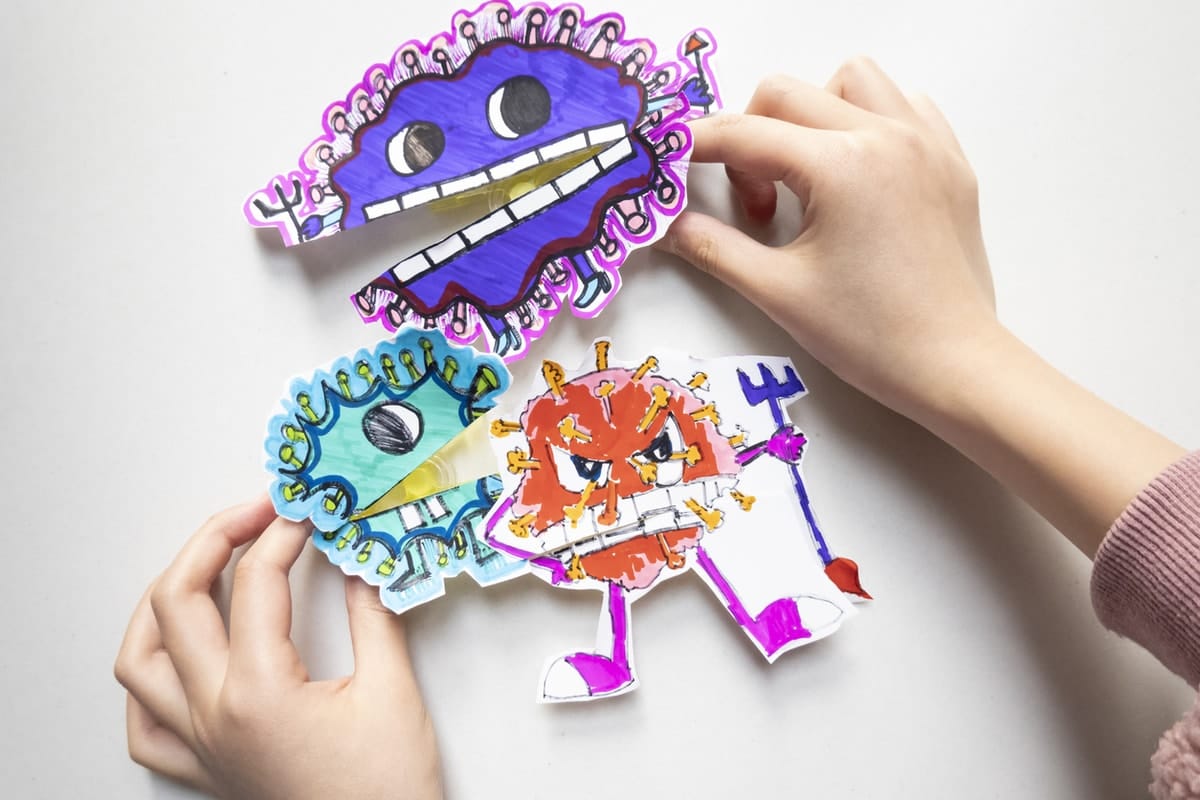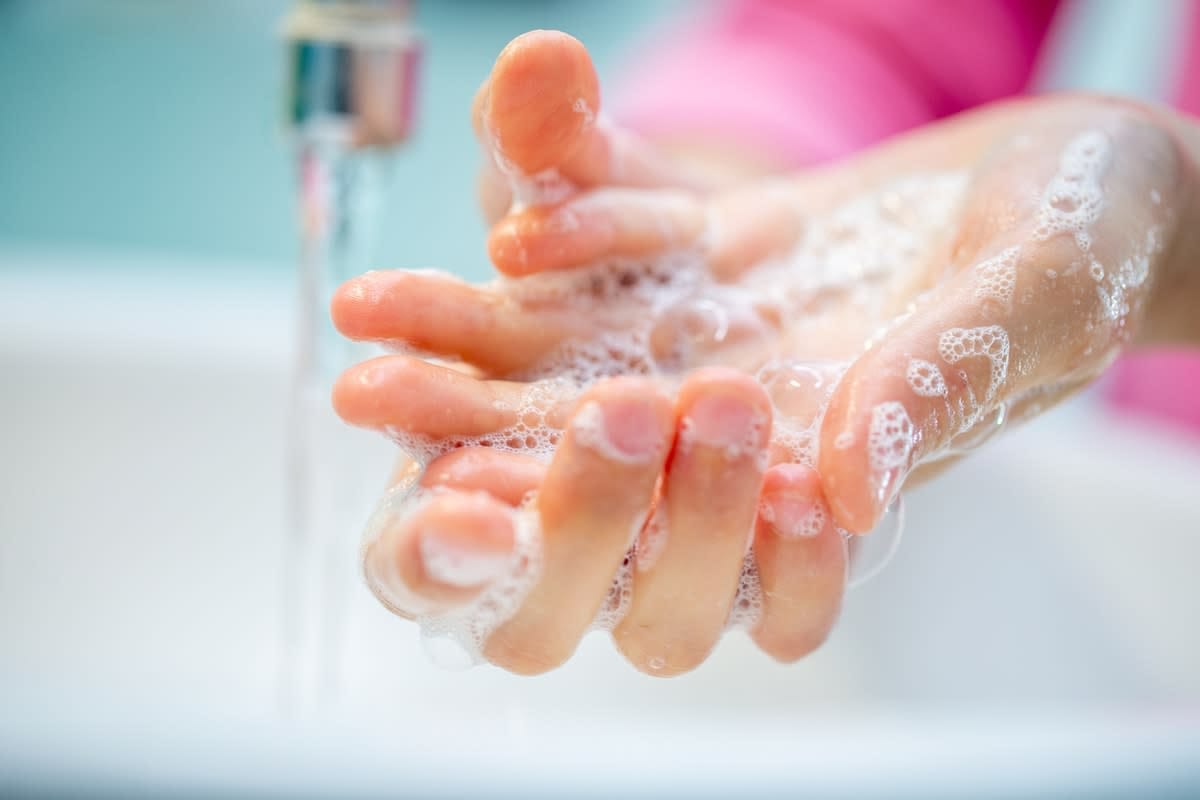
Some children and young people will have many queries about COVID-19, asking even the hardest questions, such as, “What happens if we all die?”; “Will we ever find a cure?”; “I’m scared I’m a spreader – will I hurt Grandma?”
Children worry more if they’re kept in the dark, and sometimes will fill in the blanks with their imagination or with incorrect information they’ve heard at the supermarket or at school from others.
Encouragingly, the prime ministers of both New Zealand and Norway have held press conferences specifically for children to give age and developmentally-appropriate information about COVID-19. Now, at a time of uncertainty, it’s key to see leaders stepping forward and actively prioritising the information needs of children and young people.
Even if your child hasn't asked any questions, or they’re little (even aged 2 or 3), they definitely will have heard about it or know something is up, because their routine, and life, has changed so quickly. Families should have regular discussions about the coronavirus, and try to ensure they’re accurate, open and honest.
It’s important to listen to any questions they may have, to let them know they’re safe, and validate whatever feelings or concerns they may have by letting them know it’s OK to feel scared or worried right now.

Don't underestimate the importance of validating young people's concerns and reassuring them that there are things we can all do to help our loved ones stay safe and healthy (such as maintaining good hygiene and social distancing).
Keep information simple, and provide realistic assurance.
For example: “Scientists are working around the clock to find a vaccine so less people get sick”; or “Most kids are actually fine during the virus – you will be, too.”
If you have teens, try to manage their information intake and make sure it’s coming from reputable sources, such as the World Health Organisation. There’s a lot of fake news out there that contributes to panic and alarm, rather than being practical, calm or kind.
How to talk about it
Children and young people need to have ongoing conversations about the virus – what it is, why so much has changed in their life, and updates on the “rules” from the government about isolating.
A way to start talking about COVID-19 is to ask your child what they know and/or might have heard already, and let them guide your discussion with the information they have. Answer whatever questions they have using the facts about COVID-19 specifically for discussions with children developed by the Centers for Disease Control and Prevention, or the information from UNICEF.
Continue to talk to your child about what they’ve seen and heard, help them understand what they’re reading, and ask about any misunderstandings they may have. Try to name what they’re feeling, if it’s sad or worried. Even when busy, try to avoid a "dismiss and deny" response that could convey the perception that you’re not that interested in their feelings. Set a time to talk later, and let them know they can always ask more questions or reopen the conversation.
Validate any concerns or feelings
Ideally, we want the children to feel the "four Ss" of healthy attachment during a time of uncertainty. They’re about being seen, soothed, safe and secure, developed by Dr Dan Siegel to help children deal with difficult emotions and situations.
We do the “four Ss” by active listening, helping them to label their feelings, supporting them to ask the questions they need to, and validating whatever it is they’re experiencing (being seen and soothed). When they feel seen and heard, they’re more likely to have a sense of safety and security in circumstances that are regularly changing.
Keep explanations temperament or age-appropriate
Younger children need brief, simple information that should balance COVID-19 facts with reassurances that they’re safe, and that adults (such as primary caregivers, doctors and scientists) are there to help keep them healthy and take care of them if they do get unwell. Provide simple examples of the steps we’re taking daily to stop germs, such as washing hands. Use language such as “many grown-ups are working hard to keep you safe and strong”.
Common reactions to worrying may be that they cry more or need more cuddles, and seem a little more clingy than usual.
Primary school children are likely to be more vocal in asking questions about whether they actually are secure and what will happen if COVID-19 comes to their school, home or community. They may need help separating reality from rumours and/or imagination. Talk about the kind and caring practices happening in the community, and how governments are working to prevent any germs from spreading.
Common reactions to uncertainties may be that they have toileting accidents, cry more often, find it hard to sleep, or feel frightened when separated from parents/caregivers.
Secondary school youth can talk about the challenges in more detail, and can be referred directly to accurate sources of COVID-19 information. They’re most likely getting a lot of information from the news and on social media, not all of which is factual or helpful. Provide honest, accurate and factual information about the current situation – it can help give them a sense of control, and reduce uncertainties.
Common reactions to their worry may be withdrawing and/or isolating from the family or friends.
Children or young people with developmental, physical or emotional challenges may have stronger reactions to the changing situations. At this time, they may need more conversations of encouragement, and more explanations, from a range of forms including video, books and talking, as well as positive physical interactions such reassuring hugs from family.
Read more: How parents with young children can manage schooling in the age of COVID-19

As parents or primary caregivers
During this time, it’s important to not forget about your mental health. With such a focus on physical health and social distancing, it’s easy to forget to prioritise your wellbeing:
- Try to maintain perspective and not make assumptions. It’s reasonable to be worried and concerned about the coronavirus, but if you notice you start to feel stressed, gently remind yourself that there are many brilliant medical, scientific and public health experts around the world who are working day and night to contain and stop the virus.
- Establish a new routine. Chances are you’ve never experienced the changes that are happening right now, and life can feel unpredictable. Try to set up a new routine in the current situation. If you're home, cuddle your dog, start baking, or take up a hobby such as drawing, and don’t forget about getting enough sleep, eating healthily and exercising – it seems simple, but usually these small steps are the first to go. It can help in a situation that feels uncertain.
- Access accurate information. With so much fake news quickly spreading online, it’s critical to get the correct information from credible sources such as the World Health Organisation. This will also help to keep perspective, challenge any assumptions, and assist in feeling more in control.
- Find new ways to connect. Set up a TikTok account, use Facetime when calling family, or keep social activities alive virtually through video chat on Zoom/Skype direct from your living room.
We’re living in unprecedented times, so it’s a chance to use new, creative ways to stay connected to friends, work colleagues and family.
Children and young people will observe adults’ behaviours and emotions for cues on how to manage their own emotions during difficult times. Try to model good coping strategies, and consider doing some activities together as a family, be it a 10-minute dance party, or playing a board game.
Where you can, change the conversation at home to one of hope and sharing kindness.
There are also helpful suggestions online to stay well and cope while self-isolating:
- Children: Educational and play activities to keep kids active inside
- Teens/adults: A collection of online activities such virtual museum tours, online learning courses, and free literature/books online
- Teens: Reach Out moderated peer support chat group about coronavirus
- Adults: Beyond Blue support/online forum
Christine Grove was a senior lecturer at Monash University at the time of writing this article.





